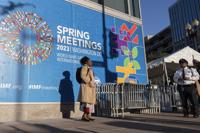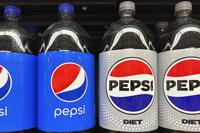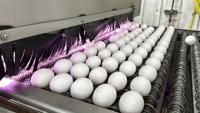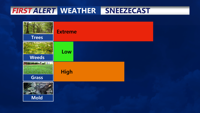The International Monetary Fund has upgraded its outlook for the global economy, saying the world appears headed for a “soft landing” — reining in inflation without much economic pain and producing steady if modest growth. The IMF now envisions 3.2% worldwide expansion this year, up a tick from the 3.1% it had predicted in January and matching 2023’s pace. It notes that the global expansion is being powered by unexpectedly strong growth in the United States, the world’s largest economy. The IMF expects the U.S. economy to grow 2.7% this year, an upgrade from the 2.1% it had predicted in January and faster than a solid 2.5% expansion in 2023.
Search / 25 results found Showing: 1-10 of 25
Inflation may be driving up food cost around the country, but patrons generally won’t see those increases at Augusta National. The prices at the Masters have mostly remained fixed for years. A club sandwich or barbeque sandwich still goes for $3, and can be topped off with a Georgia peach ice cream sandwich for $3. The price of a beer did increase to $6 dollars this year, jumping up from $5 in 2023. And with all the walking around the golf course, calories don't seem to be a concern.
Ever since the Federal Reserve signaled last fall that it was likely done raising interest rates, Wall Street traders, economists, would-be homeowners — pretty much everyone — began obsessing over a single question: When will the Fed start cutting rates? But now, with the U.S. economy showing surprising vigor, a different question has arisen: Will the central bank really cut rates three times this year, as the Fed itself has predicted — or even cut at all? A blockbuster March jobs report reinforced the notion that the economy is managing quite nicely on its own. Employers added a huge burst of jobs — more than 300,000 — and the unemployment rate dipped to a low 3.8%.
Amidst the challenges posed by inflation, one Ocean City business owner has found a creative solution to mitigate rising costs while tapping into a family tradition.
Many Americans are in a sour mood about the economy for one main reason: Prices feel too high. Maybe they’re not rising as fast as they had been, but average prices are still painfully above where they were before the pandemic. And they’re mostly heading higher still. Wouldn’t it be great if prices actually fell — what economists call deflation? Who wouldn’t want to fire up a time machine and return to the days before the economy rocketed out of the pandemic recession and sent prices soaring? Many economists caution that consumers should be careful what they wish for. Falling prices across the economy would actually be an unhealthy sign.
FILE - Plastic bottles of Pepsi are displayed at a grocery store in New York on Nov. 15, 2023. Before inflation began heating up, a 2-liter bottle of soda it cost an average of $1.67 in supermarkets across America. Three years later it is going for $2.25 – a 35% increase.(AP Photo/Ted Shaffrey, File)
Shoppers may get a bitter surprise in their Easter baskets this year. Chocolate eggs and bunnies are more expensive than ever as changing climate patterns eat into global cocoa supplies and the earnings of farmers in Africa. Cocoa is the main ingredient in chocolate, and about three-quarters of it comes from trees in West Africa. Severe seasonal winds and heavy rainfall have cut the amount harvested in recent months. The global price of cocoa has soared to record highs. Farmers who harvest cacao beans say the increases aren’t enough to cover their lower yields and higher production costs. But big confectionery companies have maintained profit margins by raising chocolate prices.
Egg prices are at near-historic highs in many parts of the world as Easter and Passover approach. The cost of filling a basket or completing a Seder plate reflect a market scrambled by disease, high demand and growing costs for farmers. While global prices are lower than they were at this time last year, they remain elevated. A senior global specialist with Dutch financial services firm Rabobank doesn’t expect them to return to 2021 levels. One major culprit is avian flu. In 2022 alone, more than 131 million poultry worldwide died or were culled on farms affected by the disease. Higher chicken feed costs due to weather and inflation have also impacted egg prices.
Higher temperatures mean higher food and other prices. A new study links climate shocks to inflation
A study by an environmental scientist and the European Central Bank finds that food prices and overall inflation will rise as temperatures climb with climate change. Thursday's study looks at monthly price tags of food and other goods, temperatures and other climate factors in 121 nations since 1996. The researchers calculate that weather and climate shocks will cause the cost of food to rise between 1.5 and 1.8 percentage points annually within a decade or so, even higher in already hot places like the Middle East. That may not sound like much but to economists it's a lot.
FILE - Shoppers buy food in a supermarket in London, on Aug. 17, 2022. Food prices and overall inflation will rise as temperatures climb with climate change, a new study by an environmental scientist and the European Central Bank found. (AP Photo/Frank Augstein, File)


























